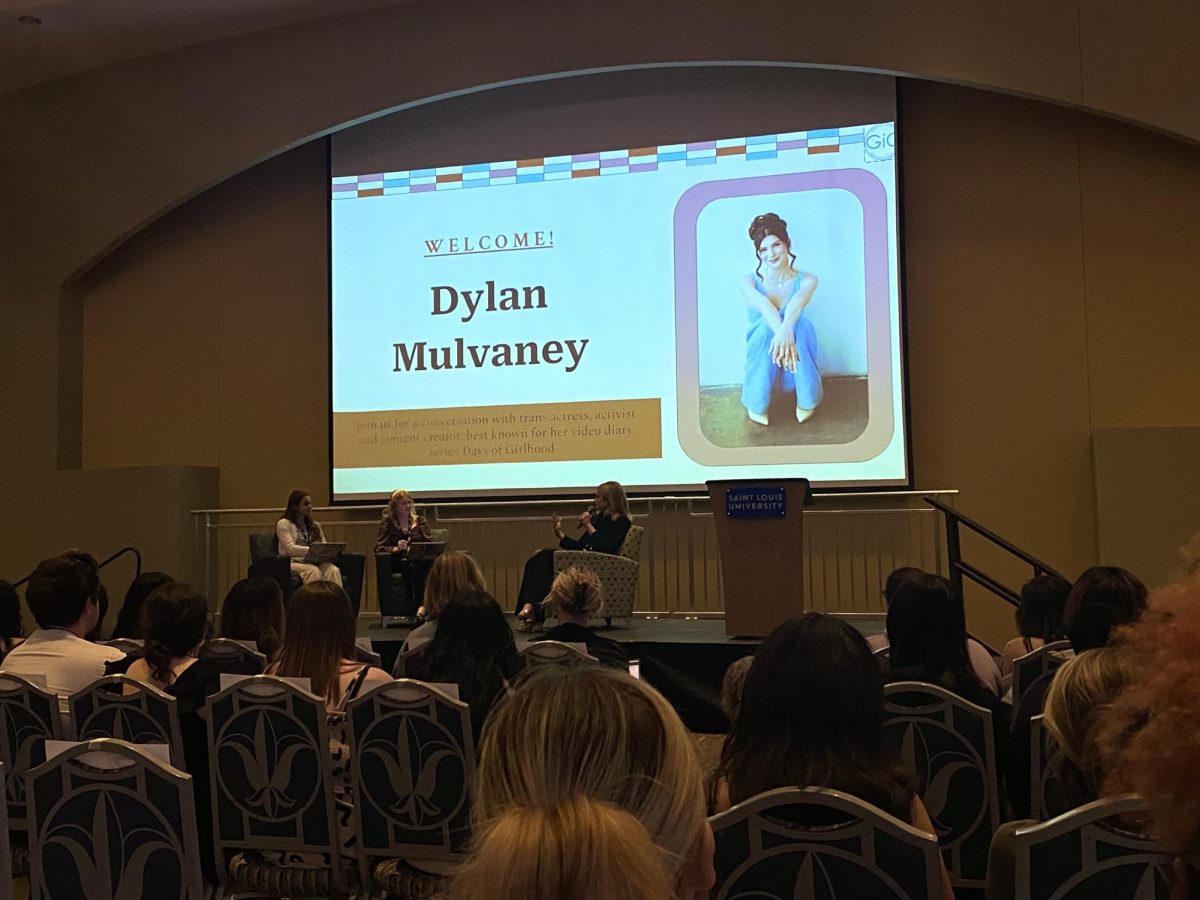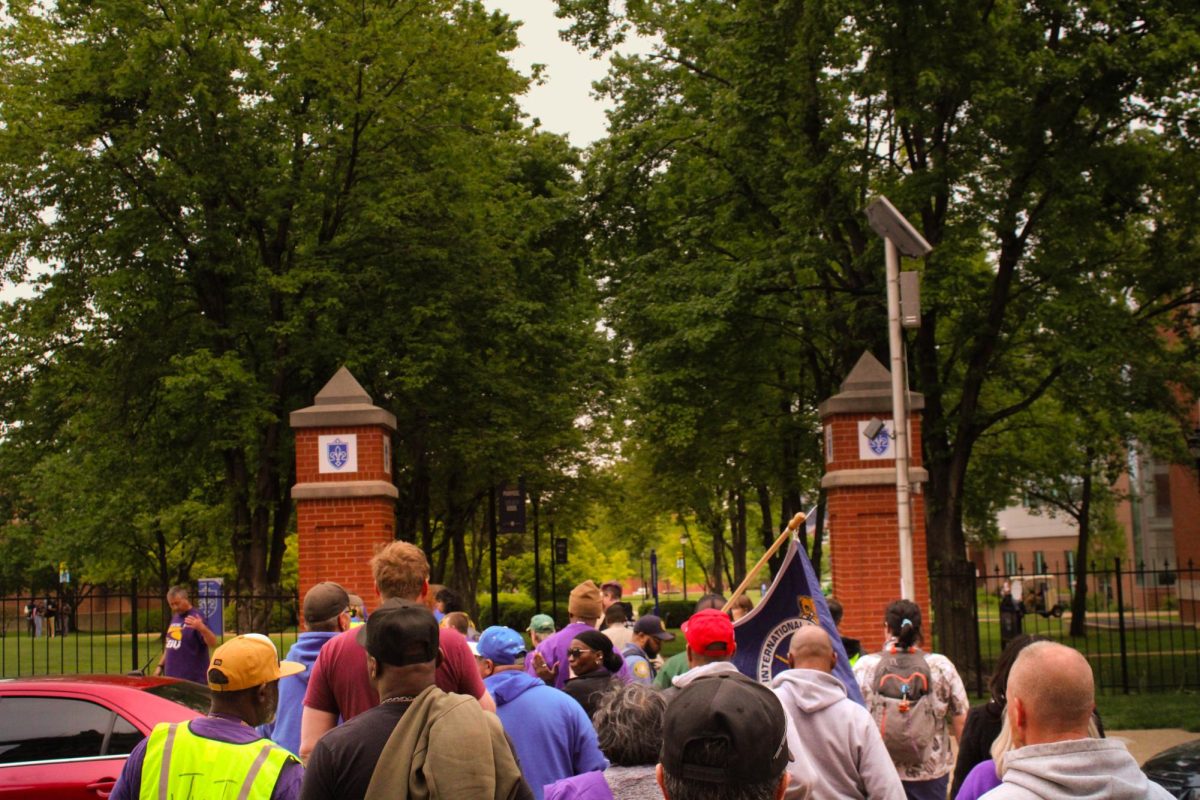Department of Homeland Security Secretary Tom Ridge and a panel
of five other officials involved in the implementation of homeland
security held a Town Hall meeting with a group of more than 300
citizens, including some Saint Louis University students, yesterday
afternoon in the Busch Student Center’s multipurpose room.
The discussion, moderated by broadcast journalist Frank Sesno,
touched on a number of areas of security, from emergency
preparedness to threats to civil liberties. Audience members voiced
their concerns and opinions through questions as well as electronic
surveys.
The event, sponsored by the Council for Excellence in
Government, a national non-profit, nonpartisan group, was entitled
“Homeland Security from the Citizens’ Perspective.”
After Ridge’s opening delivery, the rest of the meeting was
dominated by audience questions that the panelists, who each spoke
for relatively equal amounts of time, answered.
In opening remarks that lasted about 15 minutes, Ridge spoke
about the global nature of terrorism and said security threats are
something U.S. citizens will have to deal with for years to
come.
“My perspective within the department is that we believe [a
terrorist attack] will happen again,” Ridge said. “But we’re not
going to shut down America, because then the terrorists win.”
Ridge also emphasized the involvement of all citizens, which was
the focus of the town hall meeting.
“You can’t secure America in the District of Columbia,” Ridge
said. “Homeland Security professionals have been working hard since
Sept. 11, 2001, and they’ve made a great deal of progress, but at
the end of the day we need to engage every single American in one
way or another as partners with us in this effort.”
Ridge discussed appropriate ways for citizens to participate in
Homeland Security. “We don’t want you spying on your neighbors, but
if you see something unusual, call your local police.”
Ridge emphasized a number of times the rhythm of the community
and the importance of paying attention to it.
“We want citizens to be prepared, vigilant and involved,” he
said.
St. Louis Mayor Francis Slay and Missouri Director of Homeland
Security Tim Daniel were also on the panel, along with: St. Louis’
Director of Public Safety Sam Simon; Karen Webb, M.D., chief
medical officer at SLU Hospital; and Stephen Rohleder of the
service delivery company, Accenture.
University President Lawrence Biondi, S.J., was also present,
delivering the opening remarks of the afternoon, in which he said
SLU’s research facilities have played an important role in homeland
security and SLU’s mission encourages the school to “promote a more
peaceful and just society.”
During the actual meeting, which lasted more than an hour and a
half, Biondi also stood for defense of academic privacy, which
Sesno suggested may be threatened by security measures.
“I think we should assume that when students read a book, or do
research or scan the Internet, that they’re doing it for a
legitimate reason,” Biondi said. “The privacy of intellectual
inquiry is so delicate and so important that it must be
preserved…unless there’s some concrete evidence [for an
investigation]. “
Audience members responded electronically throughout the meeting
on different questions regarding security, the results of which
were projected on a screen to the right of the stage.
Topics included what places citizens thought would be likely
targets for terrorism attacks, which sources they preferred for
information on security threats and the response and prevention
agencies in which they had the most confidence.
Sesno also asked for audience members to raise their hands to
answer questions about whether participants were apprehensive about
national identification cards and whether they knew their state,
city and family’s emergency plans.
Most said they did not know public plans nor have plans of their
own, which Slay and Daniel both said did not come as a surprise.
Daniel added that communication was the hardest part of his
job.
Overall, audience questions focused on areas of preparedness,
especially with regard to medical responses.
Webb, who worked to build the Metropolitan Medical Response
System, said she would like to see the region’s medical facilities
better prepared for surges of patients.
When very few people said they would turn to their employer for
information about security threats, Rohleder, who was representing
private industry, said employers should work to improve trust with
their workers.
“Industry needs to step up,” he said, noting that 80 percent of
U.S. infrastructure is controlled by the private sector.
Speaking of St. Louis, Ridge said, “You’re doing some things
that I hope that the rest of America starts doing.”
At one point, after Ridge and the audience laughed when Slay
said he had not been reimbursed for a particular security
expenditure, Ridge gave the mayor, who was seated to his right, a
hearty slap on the back and said, “He’s doing a fabulous job.”
Ridge remained lively throughout the event, laughing frequently
and joking during his opening remarks about the political cartoons
on homeland security that he has accumulated since he began his
job.
A number of students raised the issue of the treatment of
visitors to the United States, especially exchange students, as
well as the safety of students traveling abroad.
Sesno read a few questions from KSDK-TV and KMOX audience
members, who were listening to the event live on those
networks.
Earlier in the morning, Ridge had met with 16 members of the St.
Louis community, including some of the panelists, according to
sophomore Christine Campbell, who was present.
Campbell said Ridge told the group, “How to engage youth is an
important issue to look into.”
Ridge also met with biochemists and researchers from SLU and
Washington University before attending the meeting.
Reaction to the town hall event itself seemed positive (Ridge
even drew standing ovations from a couple of audience members),
even though a number of audience members had presented challenges
and criticisms to some of the department’s policies.
Anne Sandidge, a member of the St. Louis Instead of War
Coalition, said she was glad to see 15 members of her group attend
and three of them speak.
However, “There wasn’t a lot of diversity in this room,” she
added. “I didn’t think it represented St. Louis, or the
nation.”
She noted that all the panelists were white, and that ethnic
minorities were underrepresented in the audience.
According to an electronic poll conducted when the event began,
34 percent of audience members were women.
Sophomore Patrick Ishmael said, “I think [the event] raised a
lot of questions that students and citizens had about homland
security.”
He added, “I think the answers Secretary Ridge gave were as
[thorough] as they needed to be, and [Ridge was] as succinct as we
would want him to be.”
Ishmael said he also thought the event was good for the school
and showed, “We now have the facilities to make events like this
possible.”
He said he thought those who identified themselves as “Instead
of War” members when they spoke to the panel should not have done
so because homeland security is a domestic issue.
“I used to run in those circles,” said Sandidge’s husband, Tom,
a veteran, as he motioned toward the stage where the panel had sat.
“People have good intentions that sometimes go astray. But they
really have good intentions. What struck me here is it looked like
it’s ‘us against them.’ There don’t seem to be solutions that are
inclusive.”
Kenneth Warren, Ph.D., an associate professor of political
science and a public opinion pollster, said that the DHS “has the
overall support of the American people.”
He added, “You had better believe [Ridge] has been well-trained
in focus groups and ready to put a positive spin on everything. He
knows it will be covered by the media.”
The formation of the DHS, Warren said, was aimed at
restructuring the United States’ security operations but has drawn
some flack for not including the nation’s two largest intelligence
organizations, the FBI and the CIA.
He said the DHS has come under criticism for supporting the
Patriot Act as well as failing to eliminate information-sharing
problems between different government agencies.
The composition of the audience was determined in large part by
FOCUS-St. Louis, a local nonprofit group. According to Leslie
Pinkston of SLU Event Services, 12 students had registered to
attend the event, and 22 had volunteered to work as aides as of
Tuesday evening.
Warren said Missouri was chosen because its population’s
diversity is nearly a perfect representation of the nation as a
whole.
“It’s a good state to test your policies out on,” he said.






